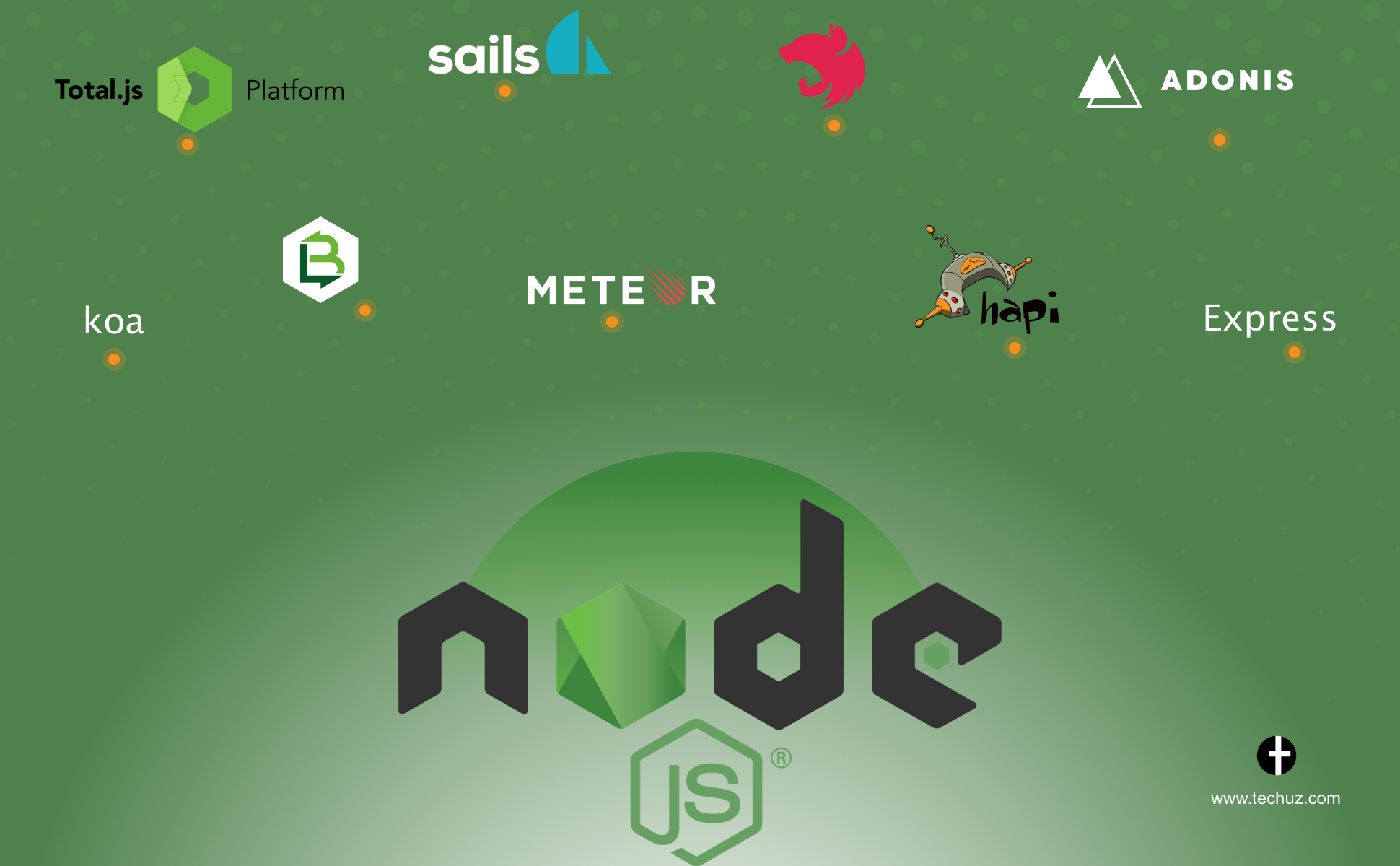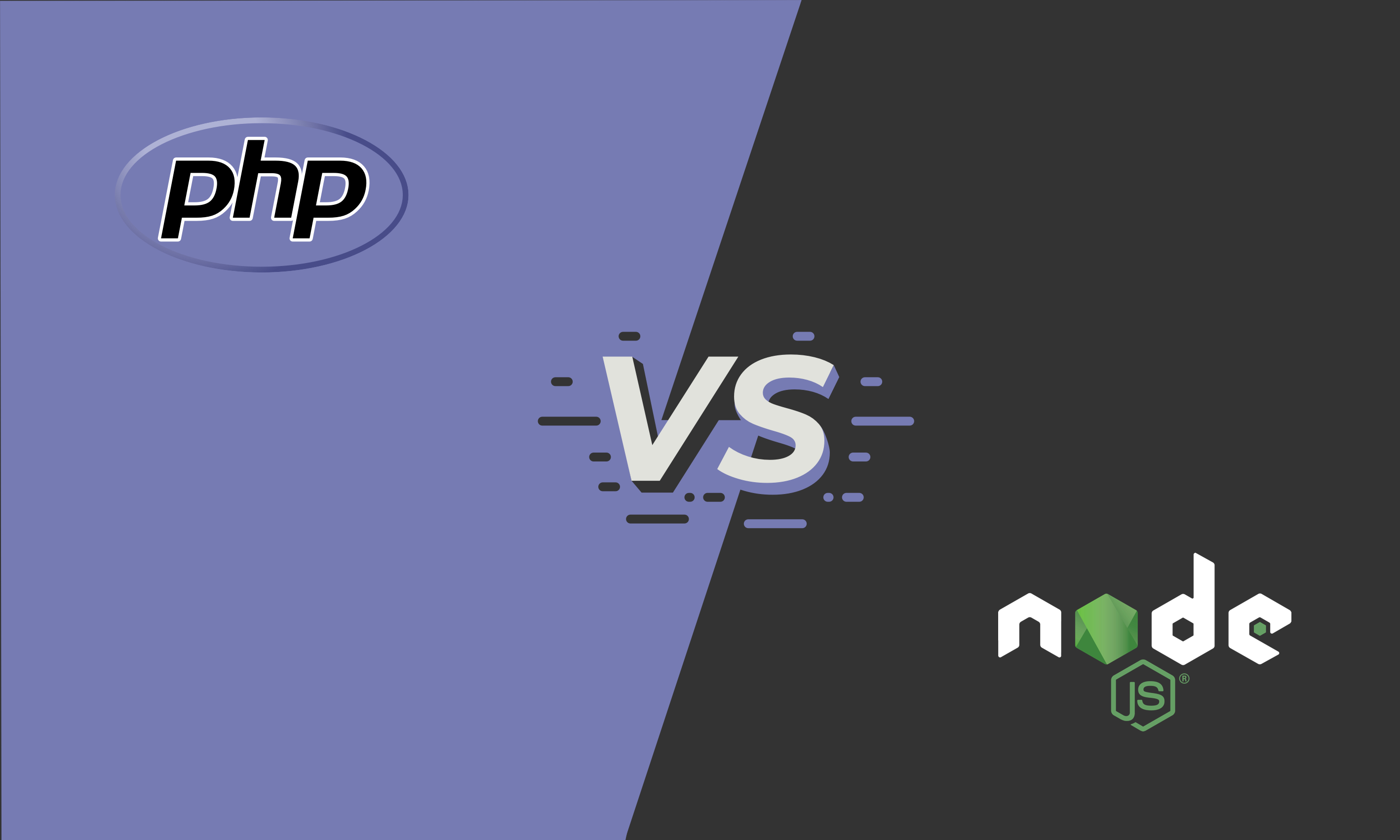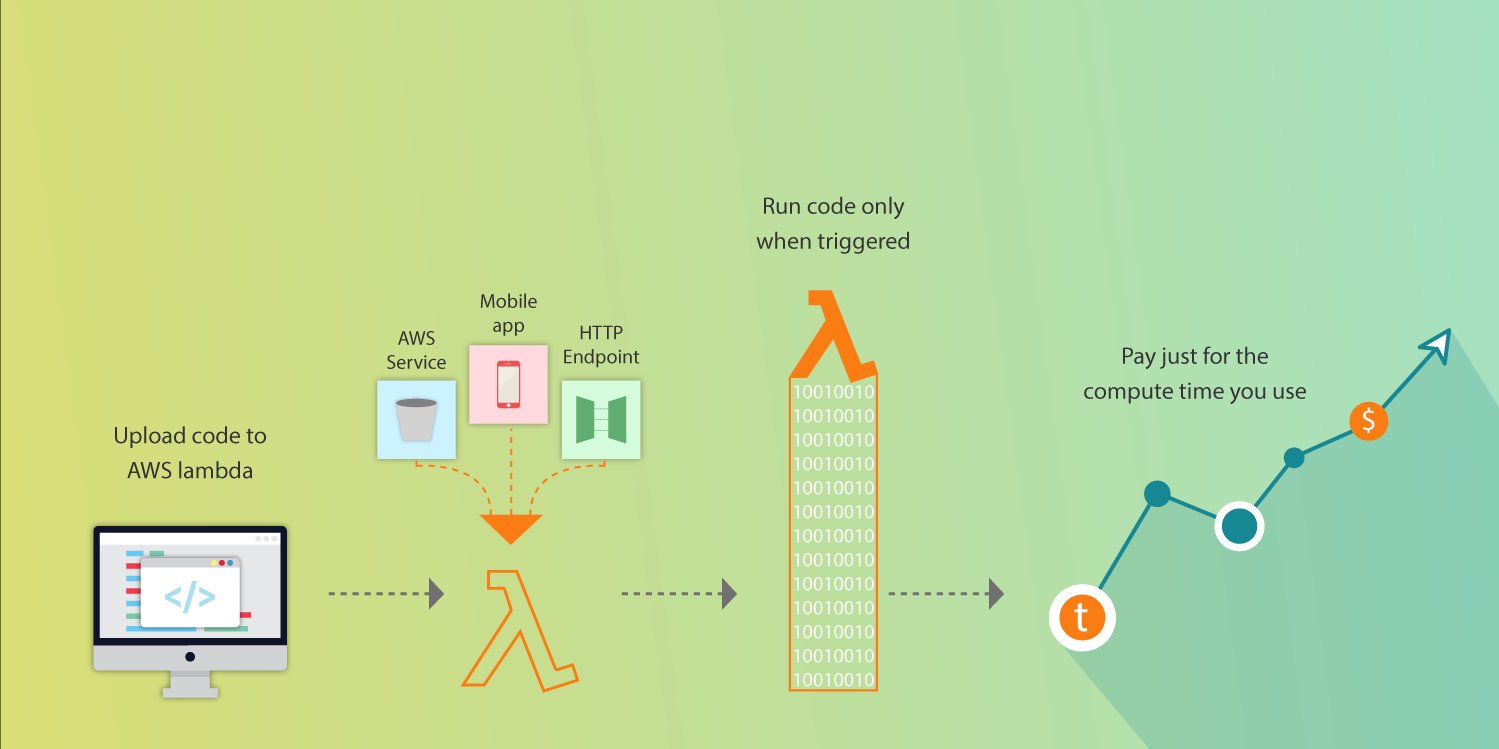Posted on
February 11, 2019
Updated on
March 20, 2024
Read time
 8 mins read
8 mins read
Looking for node.js frameworks for your project? Read on to know more…
The introduction of Node.js in 2009 was a quantum leap in web development. Before its invention, the developers had to use different languages for server-side and client-side scripting. But node.js made it possible to use JavaScript (the language traditionally used only for frontend) for developing scalable server-side applications. Not only that, Node.js also brought many benefits to the table which includes its features such as event-driven, non-blocking input/output model and asynchronous programming. This inspired the developers to adopt this new technology and made it hot favorite backend technology of global brands such as Netflix, PayPal, Linkedin, eBay, Nasa, Uber, Medium and Yahoo.
Now, Node.js has a massive community across the globe and to enhance this server-side development environment, this community has developed a number of frameworks. These frameworks provide amazing templates, libraries and reusable components that eliminates the repetitive process making the development quick and efficient. Here, we have made a list of top Node.js frameworks widely used by the node.js developers that you opt for your next project.
Top Node.js Frameworks
Express.js
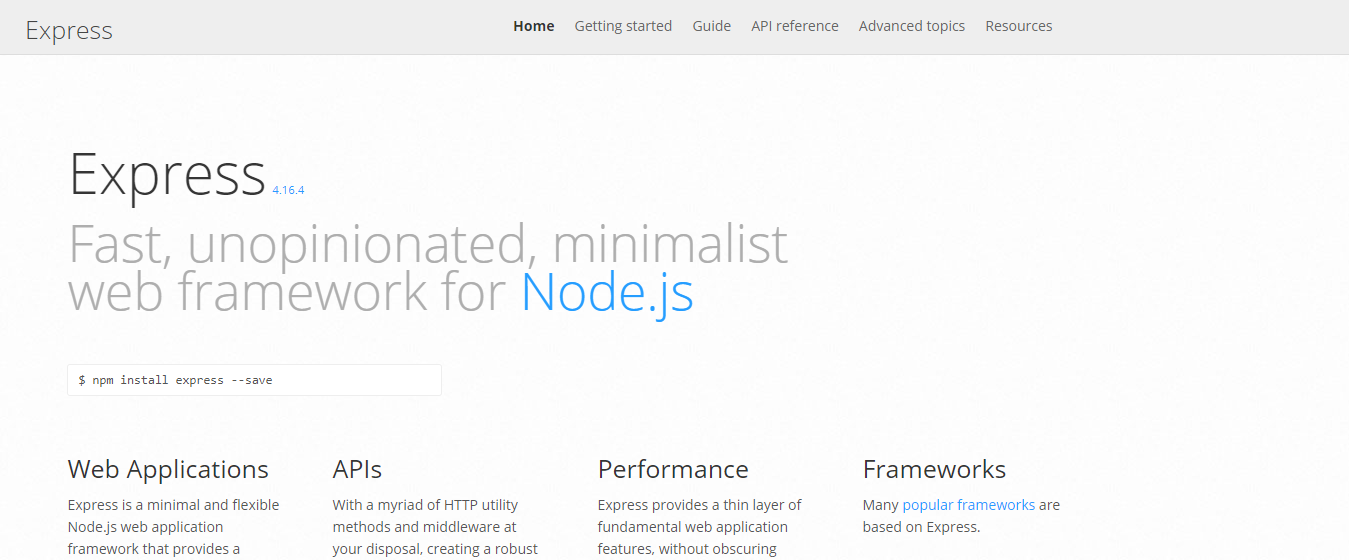
Express.js is a fast, minimal and non-opinionated node.js framework specifically designed to build web applications and APIs. The philosophy described on its GitHub readme defines it very well –
“The Express philosophy is to provide small, robust tooling for HTTP servers, making it a great solution for single page applications, websites, hybrids, or public HTTP APIs.”
Express.js was designed by TJ Holowaychuk in 2010 which was later acquired by StrongLoop and then IBM. It is inspired by Sinatra and that’s the reason it is minimal but packed with plugins for features. Also, being one of the oldest node.js frameworks, it is backed by a huge community and is one of the components of the widely used technology stack – MEAN.
1) MongoDB – The NoSQL database
2) Express.js – Web applications framework
3) Angular.js – Frontend JavaScript MVC framework
4) Node.js -Server-side runtime environment
Hapi.js
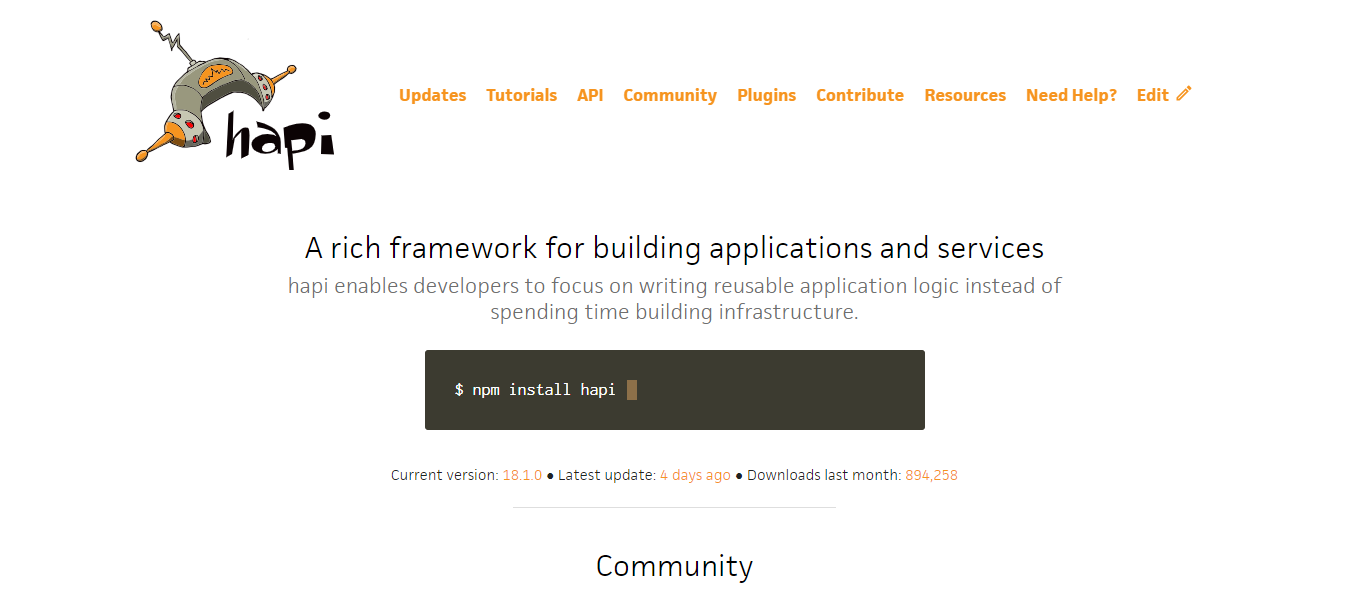
Hapi is a configuration-centric node.js framework loaded with facilities such as built-in input validation, caching, authentication and more for making web applications more efficient. It was developed by Walmart in 2011 to handle the traffic on Black Friday. The team previously used Express.js but it didn’t work for them and this inspired them to develop an all-new node.js framework. Although it was developed on the top of Express, it has become one of its renowned compeers. Hapi.js works great when it comes to collaboration among large team working on separate components without bothering the whole application. Hapi has been used by some large websites such as Paypal, Mozilla, Disney and Conde Nast.
Meteor
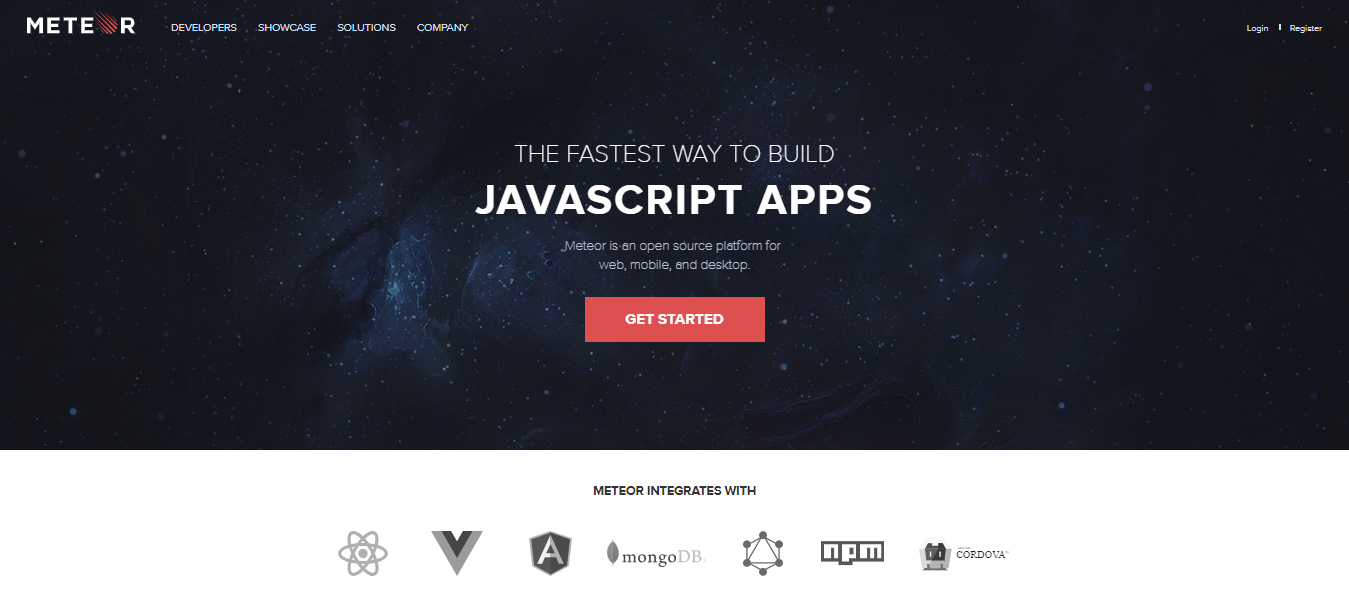
Meteor.js is one of the most used Node.js frameworks due to its ability to use the same code on both the server and client side of the application. This makes the development easier and faster as it prevents the installation of different libraries, APIs, drivers and module managers. It also offers isomorphic APIs to communicate between front-end and back-end without much bothering the developers to handle client-server management and server-session.
Other benefits of using Meteor is that it has tons of own NPM packages and comes with some great built-in features. Its official repository Atmosphere.js features more than 2,600 smart packages. And just like Express and Hapi, has a huge community of developers and documentation. The only disadvantage with Meteor is that it does not support SQL database.
LoopBack
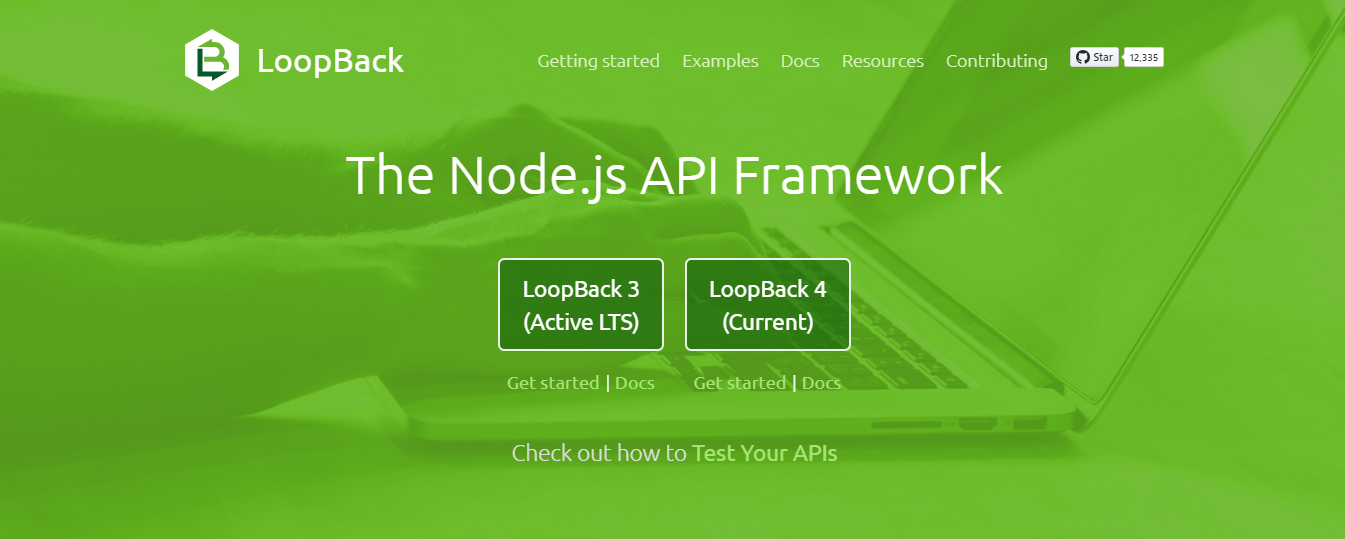
LoopBack is another popular Node.js Framework built on top of Express.js. It is built and maintained by the same company StrongLoop that long-time maintained Express. LoopBack is an API framework that allows developers to create dynamic end-to-end APIs with little or no coding. It provides ease of integration with backend with most of the database – Oracle, MySQL, PostgreSQL, MS SQL Server, MongoDB, SOAP and more. One of the great things about this framework is that it comes with convenient CLI and built-in API explorer that makes it possible to generate API documentation. Brands such as GoDaddy, Symantec and Sapient uses LoopBack.
AdonisJs
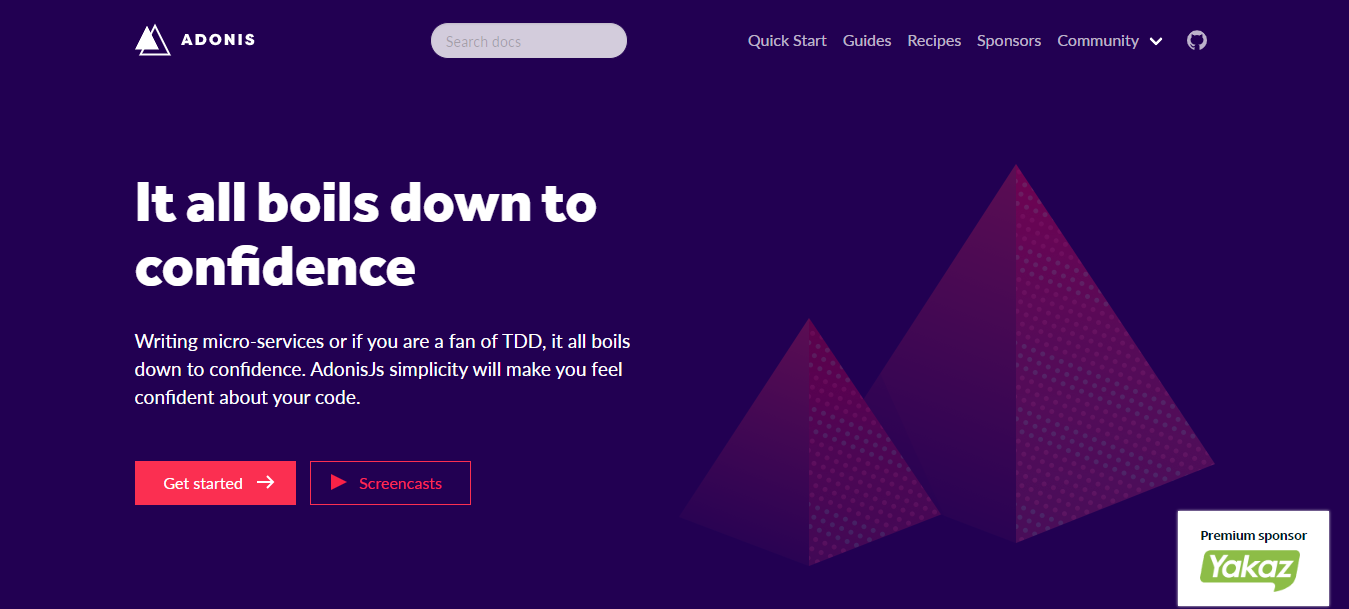
Adonis.js is a framework focused on simplicity and creating stable and scalable applications. It is inspired by Laravel which brings some of its principles like dependency injection and service providers to Node.js.
Adonis focuses on clean codes, productivity, speed and consistency in API for better development experience. It uses ES2015 to avoid spaghetti code and also ensures the developers don’t have to waste time writing callbacks. Another great thing about this framework is that it provides service providers, i.e. 1st party components to reduce the lines of code, making the development process faster.
Koa
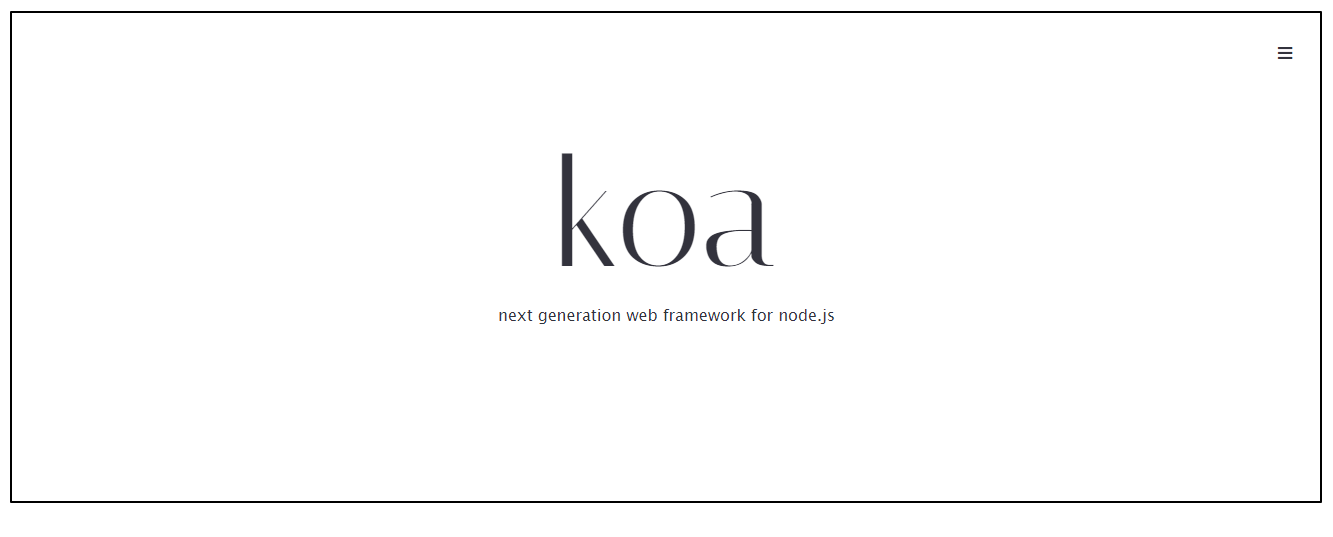
The self-proclaimed next generation web framework for node.js is a new creation by the Express team. It is designed with the thought to provide a smaller, more expressive and robust framework for web applications and APIs. It is regarded as a futuristic version of Express as it leverages the updated JavaScript features such as async/wait and generators. Using the async function, it ditches the callbacks and improves the error-handling.
Koa is more modular compared to Express that makes it customizable. Its core is just middleware kernel, unlike express which includes complete app framework. This allows you to start with the basic application and add the features as you develop further.
Sail.js
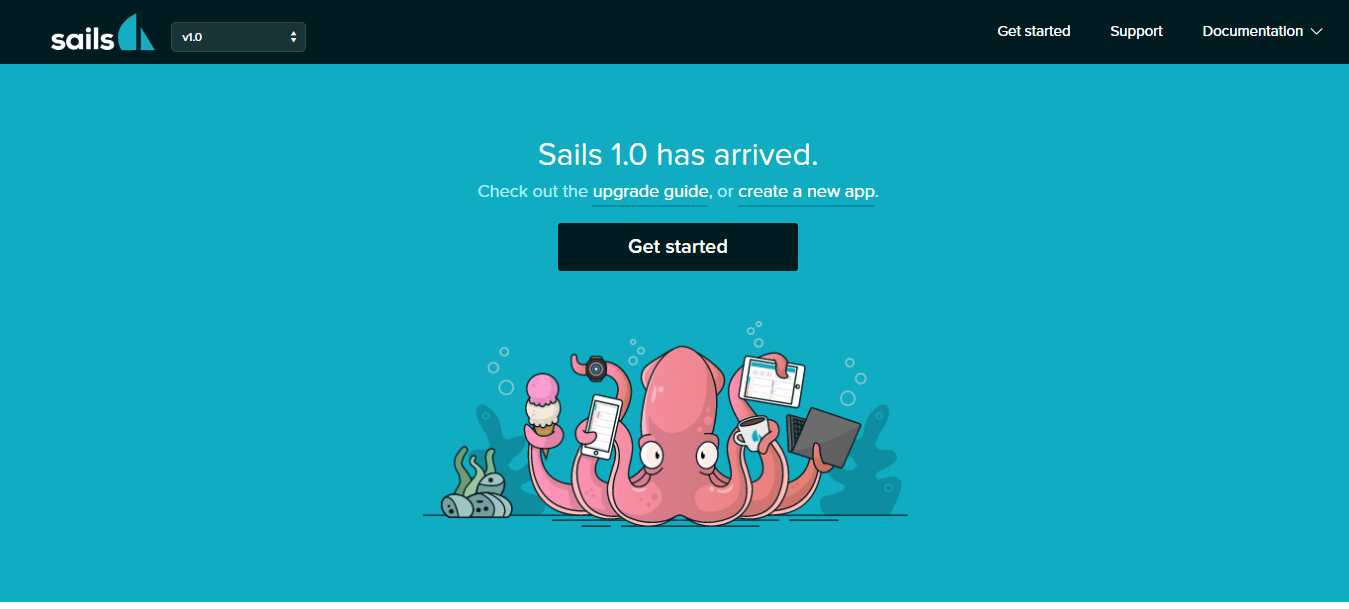
Sail.js is an MVC based framework inspired by Ruby on Rails that fulfills the needs of modern applications. It has gained traction in recent years being highly suitable for building enterprise-grade and data-heavy applications such as real-time chat rooms, games and toolbars.
Sail.js makes the development of Rest API much faster by providing basic blueprints with its installation command. It also provides compatibility with almost all database such as MYSQL, Mongo, PostgreSQL, Redis, Local Disk and more due to its waterline ORM. And when it comes to the frontend, you get even better compatibility with technologies ranging from Angular, React, Backbone, Java, Swift, Objective C and many more.
Total.js
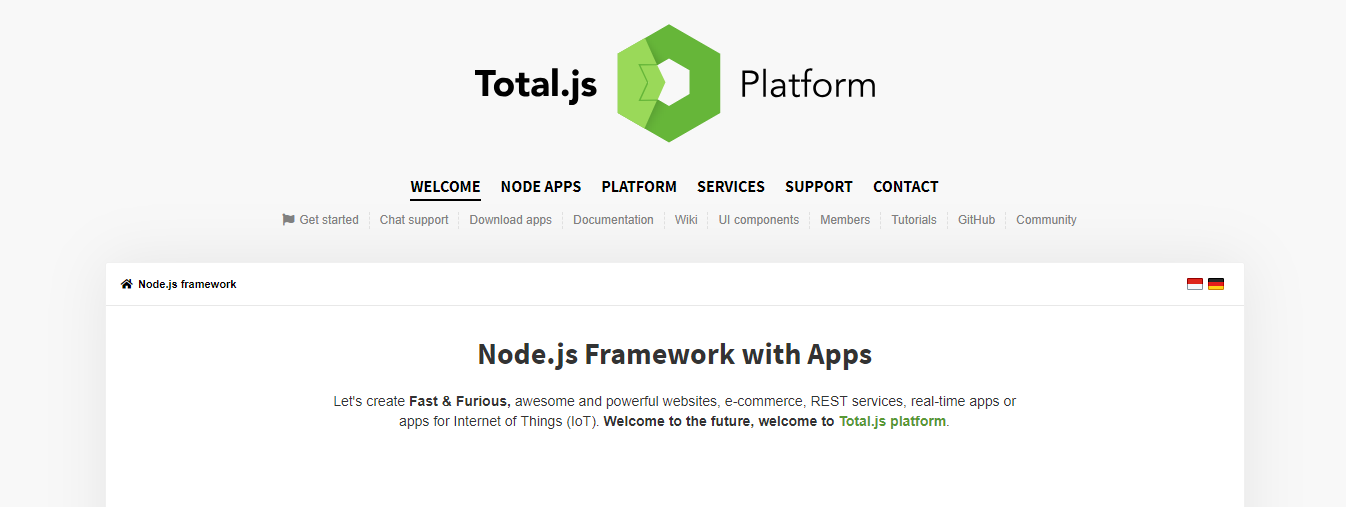
Total.js claims to built “Fast & Furious, “awesome” and “powerful” websites, E-commerce, real-time apps, apps for Internet of Things and more. It is another modular Node.js framework with MVC architecture that is compatible with most of the popular front-end technologies such as Angular, Backbone.js, Bootstrap and Polymer. Although being comparatively new, it has gained popularity among developers due to its asynchronous and extensibility features.
The framework also comes with an array of applications and UI components that makes it easier and faster to build the applications. For instance, Eshop. It is one of the best node.js based e-commerce solutions for small business. It provides a bunch of features like PayPal express checkout, embedded NoSQL database, responsive design, newsletter sender and more. Some other popular applications are – Node.js CMS, Superadmin, and Node.js Dashboard.
NestJS
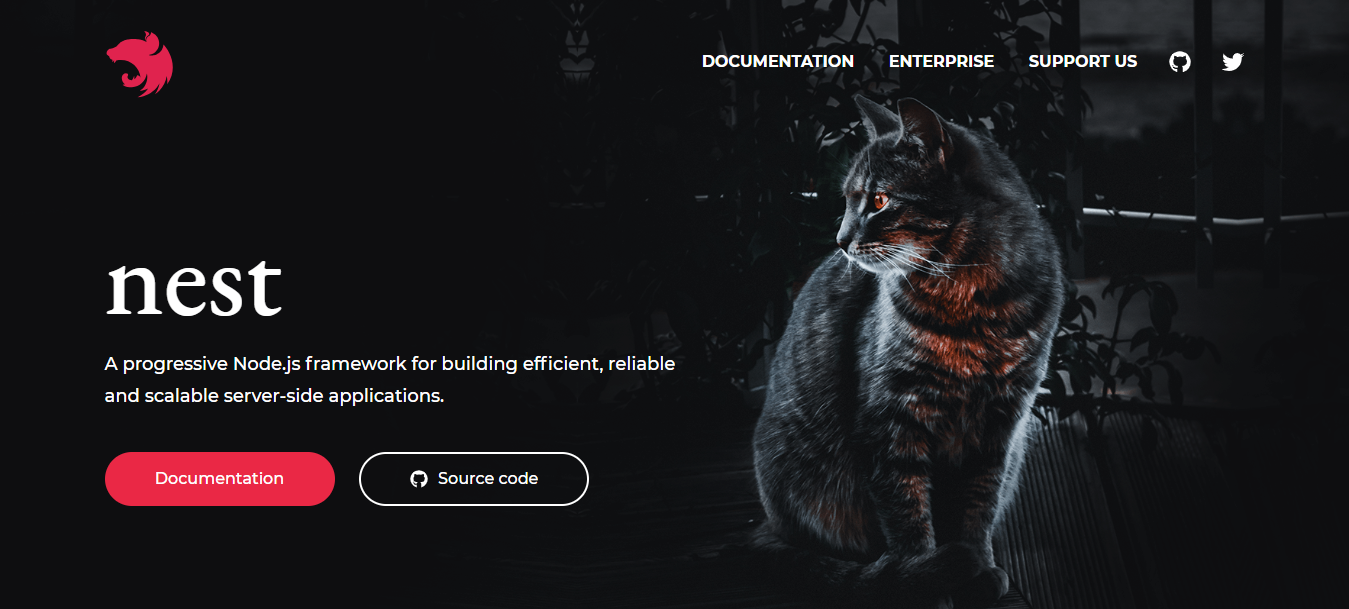
Nest.js uses modular structure to organize codes into separate modules providing ease of using external libraries and enhanced backend architecture. This is also the core idea behind Nest.js that enables developers to build scalable and maintainable applications. One of the features that separate Nest.js from other node.js frameworks is that it uses TypeScript, a superset of JavaScript and the same language used in Angular. This comes with several benefits for the developers such as dependency injection and code type checking. Another great feature that you get for using Nest.js for your application is that they provide on-site enterprise support, training and even private sessions.
Wrapping up
So how do you select the right one for your project? It obviously starts with understanding your project needs. As a web development company, we help our clients analyze their needs and also explain the benefits and drawback of the frameworks. This helps the clients to get a clear idea about the technology being used. For instance, if you want to build backend APIs along with frontend (Angular, React or Vue), Meteor is the framework that would work perfectly.
On the other hand, if the project majorly demands to build backend APIs with minor HTML for the frontend, express would do the work swiftly as it comes with its built-in HTML engine. You can also consider the community size, documentation and resources, extensibility and learning curve of the framework (in case you are new with the frameworks). The above are a few of the best node.js frameworks majorly used by the developers. So which one are you using for your next project?
